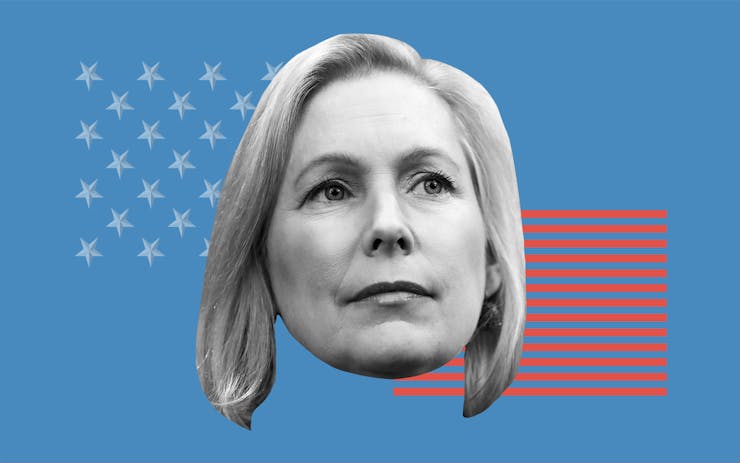This story has been updated.
Amid a crowded field of 2020 Democratic presidential candidates, nearly all of whom have said they support ending federal cannabis prohibition, few have laid out a plan to actually do it. But as candidates seek to set themselves apart, some are making legalization a campaign priority—and giving a glimpse of what a post-prohibition America might look like.
“It’s past time to make this happen at the federal level.”
The latest candidate to put out a concrete proposal is US Sen. Kirsten Gillibrand (D-NY), who on Wednesday published a post on Medium calling today’s enforcement of cannabis laws “a continuation of the institutional racism that has defined our criminal justice system for decades.”
“Legalization is a criminal justice issue, a health care issue, and an economic issue,” she wrote. “It’s past time to make this happen at the federal level.”
Under my plan, we’ll decriminalize marijuana and expunge all non-violent marijuana charges, expand access to medical marijuana, nationally legalize and tax recreational marijuana, and create economic equity and justice through marijuana-driven programs.
It’s 2019. It’s time. pic.twitter.com/eUUyte1Xg7
— Kirsten Gillibrand (@SenGillibrand) June 5, 2019
If elected, Gillibrand said, she would “immediately deschedule marijuana as a controlled substance.” She would then begin building a national framework to boost cannabis research, tax and regulate commercial sales, and harness economic opportunities to benefit communities “disproportionately harmed by marijuana laws.”
It’s a plan that recognizes the multifaceted role that many legalization advocates now see cannabis playing: adult-use drug, revolutionary medicine, economic engine, and tool for social justice.
The short post—a breezy five-minute read—doesn’t dive deep into details, instead laying out a balcony-level plan for what Gillibrand says she’d work to achieve:
- Establish a national process to make marijuana production and consumption clean, safe, and sustainable
- Expunge all non-violent marijuana convictions
- Invest in research for medicinal applications, and require coverage for medical marijuana in all health insurance plans, including Medicare, Medicaid, and the VA
- Legalize and tax recreational marijuana nationwide, and direct revenue towards programs that help repair the damage done by the War on Drugs
- Normalize cannabis businesses’ tax treatment and allow access to the banking system
- Create equity for small business investment in the cannabis industry, lifting up communities that have been most hurt by marijuana laws
Many of the points echo a plan laid out in congressional legislation, the Marijuana Justice Act, introduced in February by Sen. Cory Booker (D-NJ), himself a 2020 candidate, and cosponsored by Gillibrand and three other presidential hopefuls: Elizabeth Warren (D-MA), Bernie Sanders (I-VT), and Kamala Harris (D-CA).
Though other candidates have said they support legalization, plans by Booker, Sanders—who in 2015 introduced the first-ever Senate bill to legalize cannabis—and Gillibrand are so far the most extensive indications by candidates of what they’d like federal legalization to look like. All three also have winning ratings from NORML, which ranks candidates based on their history of supporting cannabis reform. Gillibrand currently has an A rating, just behind the A+ ratings of Booker and Sanders.
“Nothing proposed today can ever undo the devastating harm done to generations of communities and families of color by the War on Drugs,” Gillibrand, who announced her candidacy in March, wrote in Wednesday’s post. “But it’s long past time to start making this right.”








